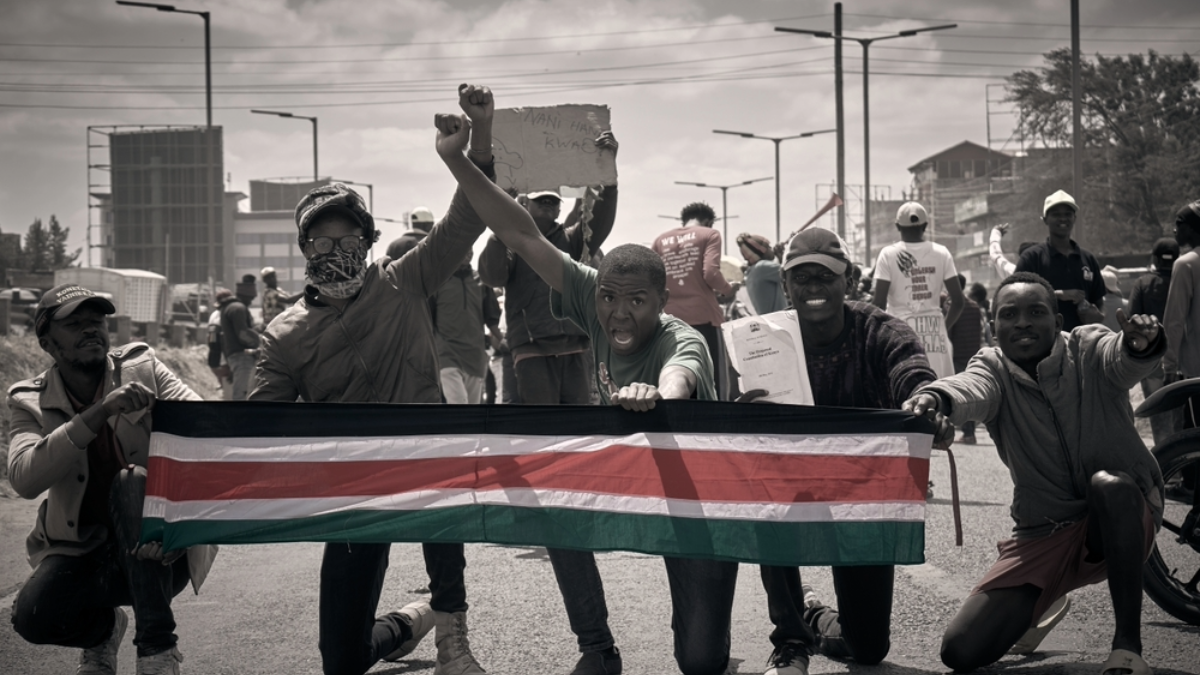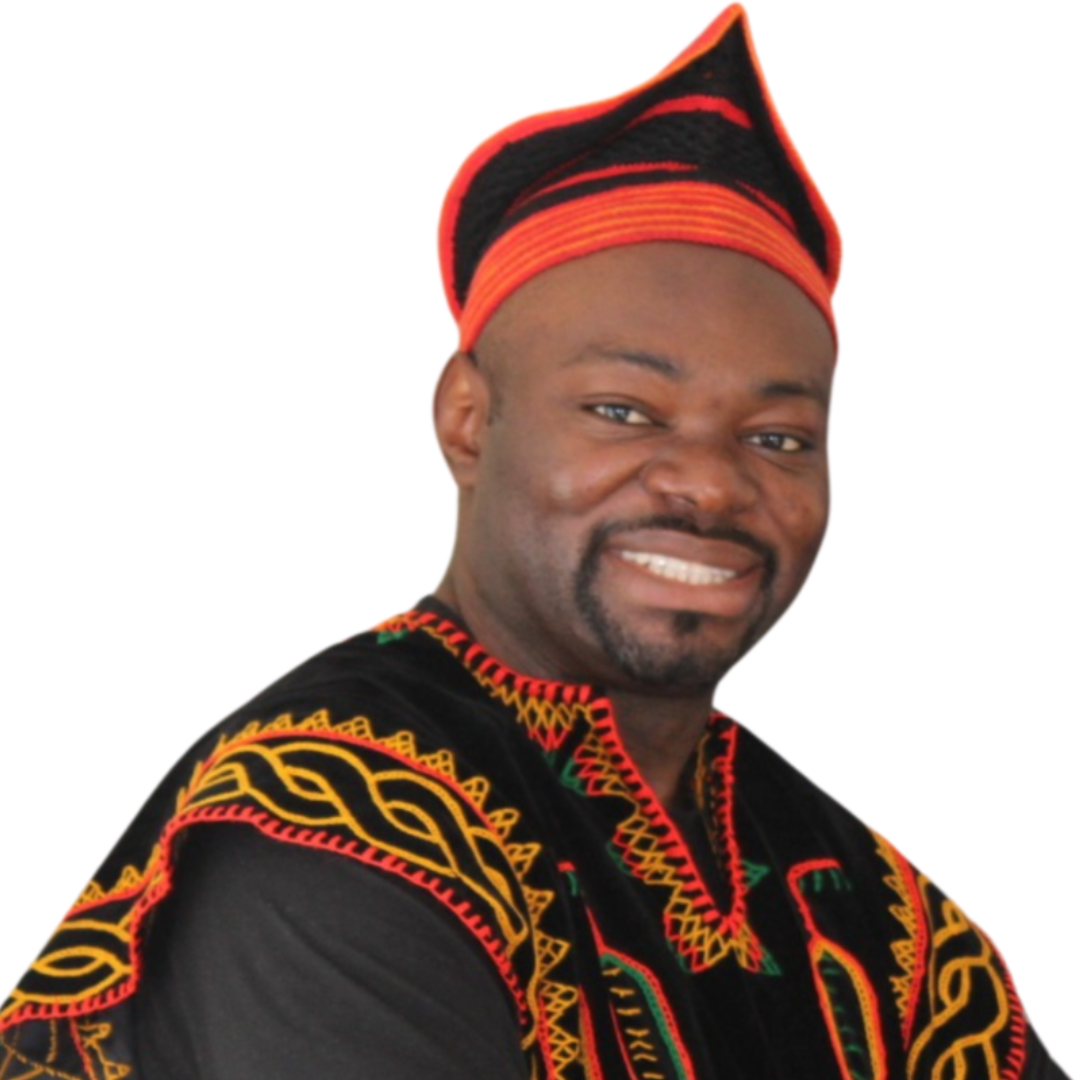Africa Needs Digital Democracy, But Challenges Abound
Bernard Ngalim, Christian Kaunert / Sep 19, 2024
Gen Z protests in Kenya, June 2024. Shutterstock
Digital and social media are playing an increasingly important role in African politics. For instance, Kenya's youths recently mobilized themselves on X (formerly Twitter) and successfully organized protests challenging a government law that would increase taxes. The protests started in Nairobi but quickly spread across the country without visible leadership. William Ruto, Kenya's President, addressed the protesters in a televised interview on live TV, but his message failed to quell the protests. Protesters refused to join a physical committee that would meet with the government and insisted the President should meet with them on X.
President Ruto finally adopted the youths' strategy and engaged with them on X on July 5, 2024. During the live spaces, he engaged with about five and a half million people who tuned in to listen to the engagements. Participants asked questions in the over two-and-a-half-hour conversation, and he provided answers. The conversation replaced scripted traditional interviews where the President generally has an aura over the journalists. Kenyan youths harnessed digital democracy to directly engage with and influence the President, successfully circumventing traditional channels such as Statehouse speeches and media interviews. With such progress, Africans can envisage a future where citizens bypass broken bureaucratic procedures and actively participate in directing the future of their democracy. Digital mobilization can successfully bring citizens together for a cause and force a departure from the status quo.
Following the Kenyan example, Nigerians organized themselves online to lead demonstrations in major cities against bad governance in the country. Like the Kenyan example, the leadership of the Nigerian "End Bad Governance in Nigeria 2024" movement is not precisely known. However, these protests have not enjoyed the support seen in Kenya. In a televised address to the nation, President Bola Ahmed Tinubu acknowledged the impacts of bad governance on the citizens but lamented the destruction of a digital center constructed as part of the Digital and Creative Enterprises program to advance digitalization in Nigeria.
Regardless of whether citizen demands were met, these protest movements showed the power of digital media to challenge power and advance democratic interests. But despite these first steps in using technology to mobilize in Africa, structural challenges will continue to impede the practical take-off of digital democracy. Factors like inadequate access to the internet, government restrictions, and cybersecurity threats constitute obstacles.
Challenge #1: Inadequate internet access
Access to the Internet is critical to fueling digital democracy because, without the Internet, citizens cannot organize, communicate, or express themselves freely as they did in Kenya and Nigeria. Beyond organizing movements to advocate for change, access to the Internet is necessary for voter registration, computing election results, accessing government services, and conducting business.
Christina Duarte, special adviser on Africa to United Nations Secretary-General António Guterres and the former finance minister of Cabo Verde, has argued that access to the internet goes beyond internet connectivity and involves electricity supply, education, and financial resources to access these resources. The absence of these other factors challenges the development of digital democracy since only a handful of people can access the internet. Organizing mass engagements, setting up electoral equipment, or providing adequate services is impossible without adequate reach.
Challenge #2: Government internet restrictions and shutdowns
African governments have been noted to restrict access to the internet or completely shut them down during serious political activities like protests or elections. For example, in Tanzania, Ethiopia, Guinea, Mauritania, Senegal, and Sudan, the government restricted internet access and social media apps because of elections or political crises. The BBC cataloged internet shutdowns in Africa since 2019 and noted that "cases of internet shutdowns in Africa have been rising." Access Now took legal action in 2018 in Cameroon's Constitutional Council to challenge the legality of a 94-day internet shutdown in the Anglophone regions following the Anglophone conflict but lost the case because the NGO did not have the right to bring its challenge before the Court.
Challenge #3: Cybersecurity
Cybersecurity concerns remain a significant concern in digital democracy. Digital democracy and online organizing are great, but organizers can be surveilled, bullied, or have their devices hacked, compromising their privacy. When organizers use the internet to plan and promote their cause, they risk their safety because they communicate and share information with strangers whose intentions they may not know. Like African journalists who have suffered cybersecurity and spyware attacks, online organizers face similar threats.
Reporters Without Borders has noted new and evolving forms of censorship related to online cyber-attacks, such as adversaries hiring online trolls to distort campaign information or hijacking accounts to spread misinformation and alternative narratives. Considering the impact and importance of digital democracy in advancing democracy, good governance, freedom of expression, and assembly, organizers should adopt relevant cybersecurity safety measures.
Frequently organized, free, transparent, and credible elections are the cornerstone of democracy. However, in this age of digital democracy, elections are increasingly becoming digitized, thereby inviting cybersecurity risks. According to University of South Wales researchers Sibe and Kaunert, before the 2015 Nigerian presidential elections, the Election Commission's website and the result viewing portal suffered several attacks. Such attacks indicate the possibility of exploiting digital tools to circumvent a critical aspect of digital democracy.
Recommendations and Call to Action
Four key steps should be taken to improve access to digital and social media tools that are crucial to democratic governance in Africa.
- Improve Internet Access: Like the Republic of Guinea's intention mentioned above, upgrading African countries' technological and internet infrastructure is vital for the growth of digital democracy, economic development and social growth in the continent. These should include critical aspects like infrastructure, electricity, and financial systems that will accompany the sustainability of the technology infrastructure.
- Improve the continent's cybersecurity posture: Citizens and online organizers must ensure their digital systems used to organize and mobilize for public engagement are properly protected to prevent cybersecurity attacks and privacy breaches. They should use encryption, passwords, antivirus and malware systems to protect their devices. On their part, African governments should categorize elections and the associated infrastructure as critical infrastructure, and provide the necessary technical and physical protection required to ensure their security. This includes safeguarding access to the internet, even on election day.
- Uphold the freedoms of expression and assembly: Democracy will not exist without the fundamental freedoms of expression and assembly. Adopting strict laws restricting or violating these freedoms will force citizens to adopt digital democracy tools. With digital democracy, citizens will bypass law enforcement, and the results can be catastrophic. African governments must acknowledge developments orchestrated by technological advancements and recognise that African citizens learn quickly from other countries. The current crop of laws regulating freedoms has become redundant. The publication of images where police and soldiers are deployed to torture, arrest and even kill unarmed protesters does not speak well of the continent. Youths are yearning for democracy and want to participate in the governance of their continent.
- Transparent and credible elections: Involving all political stakeholders and civil society actors in organizing and managing elections is crucial to ensure a trusted outcome. African youth have the potential to contribute to their continent's development, but they often feel unheard in political processes. As a result, they have started adopting digital democracy tools to ensure their voices are heard. Many young Africans are leaving their home countries and settling abroad because the management of electoral processes deprives them of their right to participate in choosing leaders. While some politicians may consider this a solution and a pathway to avoid engaging the youths, young people get exposure to more advanced forms of democracy and elections and quickly learn how to mobilize with digital tools. While abroad, they help to mobilize and sponsor protests at home. In the end, eliminating youths from participating in elections or organizing unfair elections hurts the government.
Conclusion
There is little doubt that digital democracy will revolutionize democratic progress in Africa. Digital democracy significantly advances the freedoms of thought, expression, assembly, and participation. Despite the success of movements such as in Kenya, all citizens in African democracies must carefully analyze the risks they face when engaging in digital democracy. Failure to understand these risks will expose organizers and participants to further risks that could be deadly. Digital democracy can catalyze Africa's transformation if all relevant stakeholders, including governments, political parties, civil society organizations, and citizens, intentionally collaborate to overcome these obstacles. While digital democracy remains a strong vehicle for democratic advancement, it can only advance freedom and stimulate economic growth if citizens feel involved and respected.
Authors

